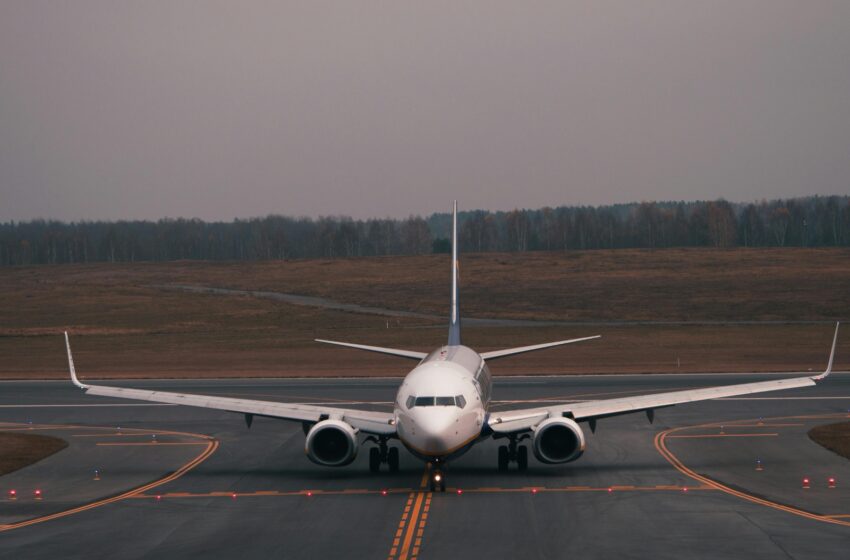Boeing to Acquire Spirit AeroSystems in $4.7 Billion Deal

The acquisition of Spirit AeroSystems by Boeing represents a crucial step towards improving manufacturing quality and safety. With significant regulatory and operational hurdles ahead, the deal aims to align production systems and address persistent flaws, reinforcing Boeing’s commitment to becoming a more reliable and efficient manufacturer.
Key Highlights
– Boeing agrees to buy Spirit AeroSystems in an all-stock deal.
– Deal valued at $4.7 billion, including Spirit’s debt, totals $8.3 billion.
– Acquisition expected to improve safety and quality control.
Boeing announced on Monday that it will acquire its fuselage supplier, Spirit AeroSystems, in an all-stock deal valued at $4.7 billion. Including Spirit’s debt, the total transaction value reaches $8.3 billion. Boeing’s offer of $37.25 per share represents a significant move to bring the struggling fuselage maker back under its control. Spirit’s shares had closed at $32.87 the previous Friday, giving the company a market capitalization of approximately $3.8 billion.
Historical Context and Current Challenges
This acquisition comes after Boeing disclosed in March that it was in talks to acquire the Wichita, Kansas-based company. This announcement followed a serious incident where a fuselage panel blew out midair from a nearly new Boeing 737 Max 9 on an Alaska Airlines flight, triggering a fresh crisis for Boeing. Spirit AeroSystems, which produces fuselages for the 737 and other parts including sections of Boeing’s 787 Dreamliners, was originally spun off from Boeing in 2005. Last year, about 70% of Spirit’s revenue came from Boeing, with roughly a quarter from producing parts for Airbus.
Leadership and Strategic Alignment
Boeing CEO Dave Calhoun, who is set to step down at the end of the year, emphasized the strategic benefits of the acquisition. “Among the many actions we’re taking as a company, this is one of the most significant in demonstrating our unwavering commitment to strengthen quality and make certain that Boeing is the company the world needs it to be,” Calhoun said in a message to employees. He anticipates the deal will close by mid-2025, pending regulatory approvals, Spirit shareholder consent, and the sale of Spirit’s Airbus-related operations.
Airbus Compensation and Operational Adjustments
On the same day, Airbus announced it had reached an agreement with Spirit. Airbus will be compensated $559 million for Spirit’s manufacturing lines dedicated to Airbus planes, including operations in Belfast, Northern Ireland, Wichita, and North Carolina. Airbus will acquire these assets for a nominal fee of $1.
Ongoing Production Issues and Legal Pressures
The acquisition is a strategic response to ongoing production issues and legal pressures facing Boeing. Earlier this year, a fuselage blowout on an Alaska Airlines flight highlighted serious manufacturing flaws. The Justice Department plans to charge Boeing with conspiracy fraud related to its 737 Max planes, following two fatal crashes in 2018 and 2019. The department stated that Boeing violated a 2021 settlement by failing to maintain a compliance program.
A National Transportation Safety Board (NTSB) preliminary report into the Alaska Airlines incident indicated that bolts securing a door plug were not attached when the plane left Boeing’s factory. This issue is among several production flaws, including misdrilled holes and misconnected fuselage panels made by Spirit. To mitigate these problems, Boeing has started accepting only defect-free fuselages to minimize repair-related errors.
Financial Impacts and Market Reactions
The broader safety crisis has significantly impacted Boeing’s financial performance, slowing down plane deliveries and causing financial strain for both Boeing and Spirit. Boeing’s CFO revealed in May that the company would burn approximately $8 billion in cash this year, instead of generating it. The Federal Aviation Administration has stated it will not allow Boeing to expand production until it is satisfied with the company’s production lines.
Boeing’s safety record came under intense scrutiny during a Senate hearing in June, where lawmakers criticized the company’s lack of progress following the Max crashes. Boeing shares have dropped more than 28% this year, while Spirit’s shares have increased by nearly 7%.






